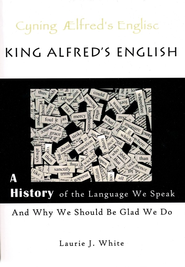You are a doctor, and you have been told that you must assist a patient with their suicide. If you don’t you will be breaking the law.
Doctors in some American states, in Quebec, and in some Scandinavian countries are facing this increasingly ethical dilemma: Help patients kill themselves or be punished.
In fact, doctors in Quebec, through Bill 52, are given a kit with three medicines designed to calm their patients’ anxiety and then stop their breathing, according to the Church Around the World.
Brittany Maynard, a vivacious 29-year-old woman dying of cancer of the brain, committed suicide in 2014 with the help of her physician. You can read her story here.
J. J. Hanson, a Marine Corp veteran, learned that he, too, is suffering from the same inoperable brain cancer that Brittany Maynard dealt with. You can read his story here.
 Now it’s your turn: Choose one of the following writing prompts.
Now it’s your turn: Choose one of the following writing prompts.
1. In a paragraph or two, write your opinion of doctor-assisted suicide.
2. How do you think it affects the doctor, who has taken an oath to “do no harm,” to actively participate in someone’s death? Write your ideas.
3. You have a friend who is considering doctor-assisted suicide. Write a letter to him or her.
4. If you have read The Giver or seen the movie, explain how being “released to Elsewhere” is similar to and different from doctor-assisted suicide (or its other names: “death with dignity” and euthanasia).
5. Make a list of the ways doctor-assisted suicide could be abused or has been abused in history.
6. Why is Marine Corp veteran J. J. Hanson not going to end his life? Do you agree with his reasons?
7. Doctor-assisted suicide is often seen as compassionate because it saves the patient from suffering. Write down three descriptive words other than “compassionate” for this kind of suicide. Then choose one from your list and explain why you believe it describes it.
8. What does the Bible say about ending one’s life (or another’s life) prematurely? Compile a list of Bible verses.
9. Write a short story in which doctor-assisted suicide figures.
10. The idea of killing off the infirm, the old, or those deemed not useful to society has been around for more than 100 years. In fact, H. G. Wells voiced that opinion in The War of the Worlds, published in 1898. Only “able-bodied,” clear-thinking men and women should be allowed to live; the rest “ought to die.” After all, “weak or silly” people “can’t be happy.” This was at the beginning of the eugenics movement in which it was thought that the only people who should be allowed to live were strong, healthy ones with good genes to pass on to the next generation. Research the eugenics movement and write about what you find.
11. What is the advantage to individuals and a society in caring for the sick, dying, and aged?
12. If you were a doctor and were told you had to facilitate patients’ suicides, what would you do?
Teachers, connect with Sharon on Facebook or Pinterest!
 Are your writers struggling? Do you wish you could figure out why your children won’t write? Would you love to have a peaceful writing class experience?
Are your writers struggling? Do you wish you could figure out why your children won’t write? Would you love to have a peaceful writing class experience?
Help your struggling writers—and you!—by identifying five hurdles to writing. Then learn practical actions you can take against those hurdles.
This article by me in The Old Schoolhouse magazine is also loaded with links to other helpful posts that will give you and your writers some welcome relief.
Click here to drain some of the tension from your writing class
Frustrated that your students don’t finish an essay or don’t know the steps to complete one? Worry no more! Click here for my latest article in The Informer about a super-practical writing schedule you WILL use!












